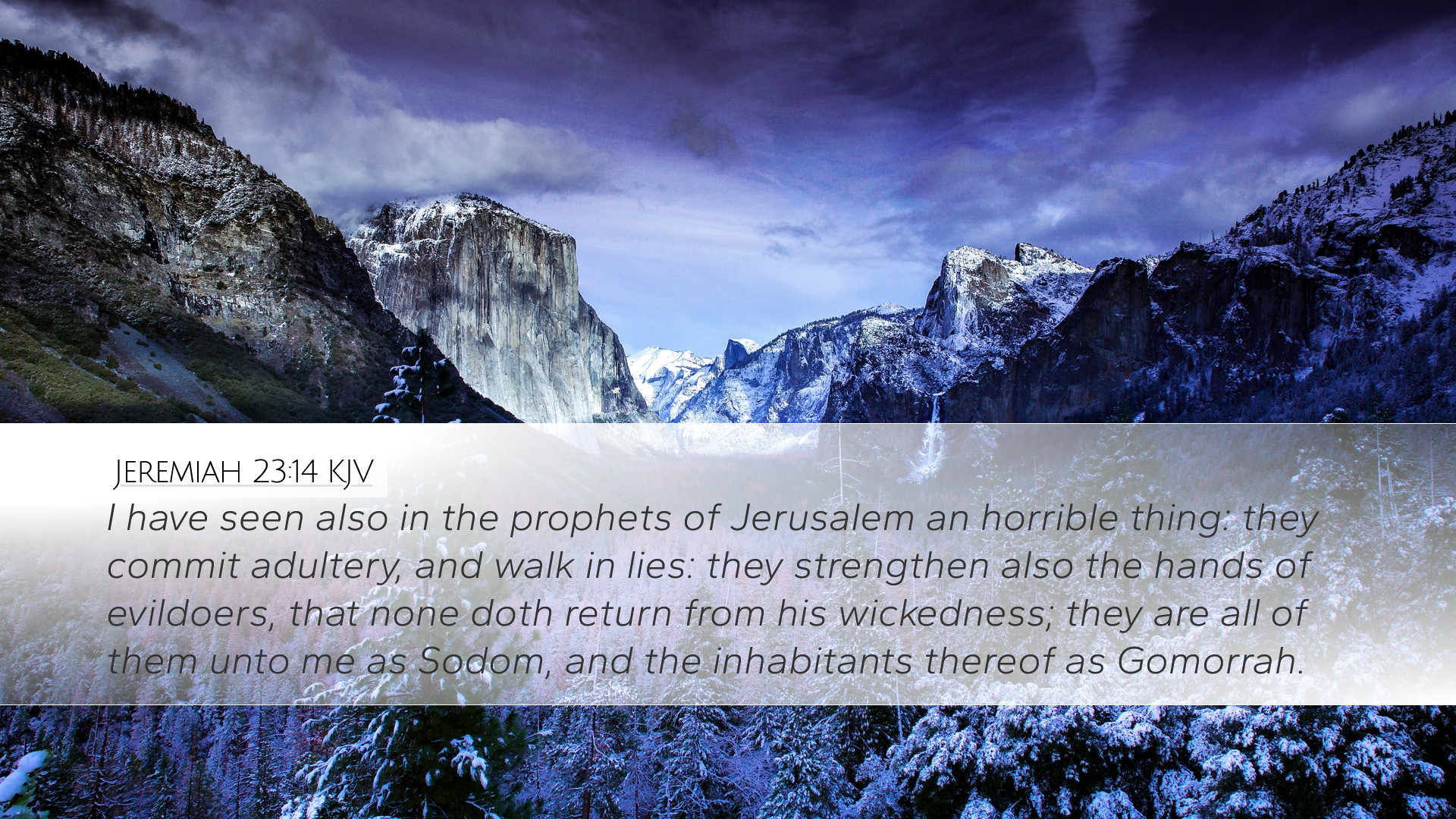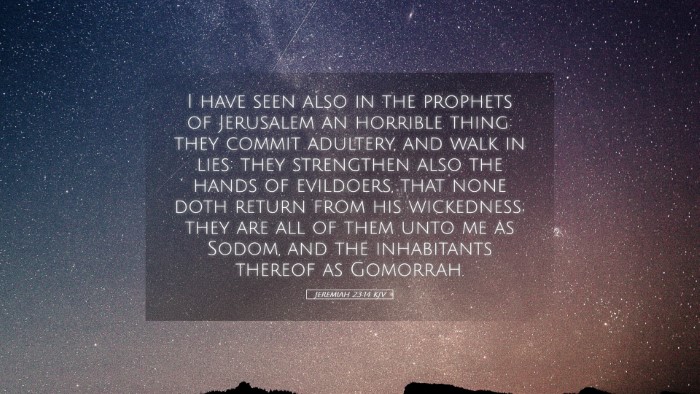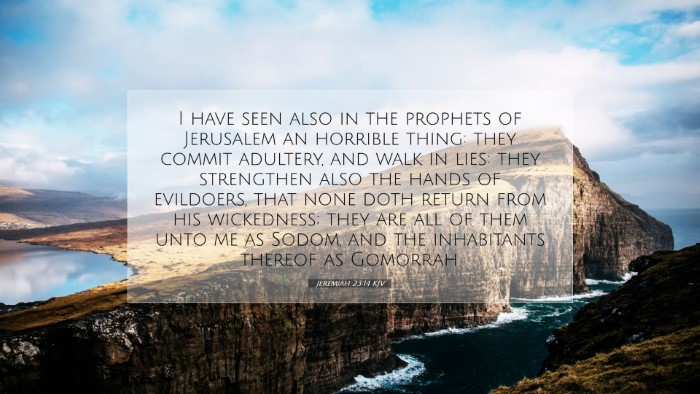Commentary on Jeremiah 23:14
Verse: "I have seen also in the prophets of Jerusalem a horrible thing: they commit adultery, and walk in lies: they strengthen also the hands of evildoers, that none doth return from his wickedness: they are all of them unto me as Sodom, and the inhabitants thereof as Gomorrah."
Introduction
This verse from the prophet Jeremiah paints a grave picture of the spiritual condition of Jerusalem and the prophets therein. It reflects God's deep discontent with the leaders of His people for their moral decay, particularly in their failure to uphold truth and righteousness.
Analysis of Key Themes
- Spiritual Adultery: The term "adultery" here symbolizes unfaithfulness to God. This metaphor is profoundly significant, illustrating not just physical infidelity, but a larger betrayal of God's covenant.
- Propagation of Lies: The prophets' lies indicate a profound failure to preach God’s message faithfully. Their actions misguide the people and create a false sense of security, leading to further moral deterioration.
- Encouragement of Wickedness: By strengthening the hands of evildoers, these false prophets contribute to the perpetuation of sin rather than calling for repentance. This notion underscores a critical responsibility of spiritual leaders to guide their congregations toward righteousness.
- Divine Judgment: The comparison of Jerusalem’s prophets to Sodom and Gomorrah highlights the seriousness of their actions. Just as these cities faced divine wrath for their sins, so too will Jerusalem unless it repents.
Commentary Insights
Matthew Henry's Commentary
Matthew Henry emphasizes the moral depravity prevalent among the prophets of Jerusalem. He likens their actions to those of Sodom and Gomorrah, suggesting that such iniquity provokes the anger of God. He notes that their idolatry and immorality are tantamount to a complete abandoning of God’s law.
Henry elaborates that these prophets, rather than being vessels of truth, propagated deceit, leading the people further into sin. They functioned as enablers of wrongdoing, which exemplifies a significant failure in their prophetic role as guardians of God's word.
Albert Barnes' Commentary
Albert Barnes offers a detailed examination of the implications of this verse. He articulates the idea that the moral failures of the prophets influence the entire society, leading them away from God's precepts. Barnes highlights how the prophets' actions create a barrier to repentance; their false assurances discourage the populace from acknowledging and turning from their sins.
Additionally, he points out that the judgment likened to Sodom indicates that the consequences of such spiritual leadership can be devastating. Barnes encourages contemporary believers to recognize the gravity of accountability that comes with teaching and leadership roles.
Adam Clarke's Commentary
Adam Clarke provides an insightful analysis of the harsh conditions faced during Jeremiah's ministry. He identifies the societal context that allowed such prophetic misconduct to flourish. Clarke explains that the false prophets had grown comfortable in their positions, manipulating the people for personal gain rather than serving God's truth.
Clarke’s commentary underscores the necessity of genuine repentance and the perils of complacency in faith. He stresses that true prophets are called to focus on advancing the Kingdom of God and must avoid partnerships with sin, calling the faithful to return to sound doctrine.
Theological Implications
This passage has significant implications for modern believers, especially those in ministry. It challenges leaders to examine their motivations and teachings critically. It becomes crucial for pastors and church leaders to uphold a high standard of integrity in representing God's word.
The concept of spiritual adultery serves as a warning against the dangers of resorting to worldly values and compromising biblical truths. The alliance with sin among leadership reflects a broader societal issue, urging believers to seek restoration and adherence to God's calling.
Conclusion
Jeremiah 23:14 serves as a solemn reminder of the responsibilities entrusted to those who bear the mantle of leadership within the church. The echoes of the past call for vigilance against the allure of spiritual complacency and the dangerous habit of enabling sin rather than confronting it. In this light, the juxtaposition of divine expectation against human failings in ministry becomes ever more pronounced, as we seek to be faithful stewards of God's truth.
Reflection Questions
- In what ways can current church leaders assess their fidelity to God's teachings?
- How can contemporary believers ensure they do not become enablers of wickedness within their communities?
- What steps can be taken towards greater accountability and transparency in church leadership?
- How does understanding the consequences of spiritual unfaithfulness motivate personal faith practices?


